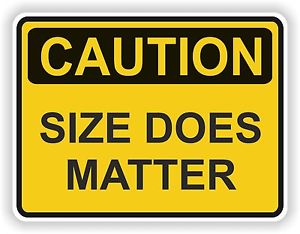 When it comes to titles, the rule of thumb is: size does matter, so when it’s big – italicize! Books, full-length plays, long poems, anthologies, collections, blogs, newspapers or magazines, academic journals; movies, radio and TV shows; operas, musicals and music albums; airplanes, ships, spacecrafts and trains; important works of art; computer and video games – all italicized.
When it comes to titles, the rule of thumb is: size does matter, so when it’s big – italicize! Books, full-length plays, long poems, anthologies, collections, blogs, newspapers or magazines, academic journals; movies, radio and TV shows; operas, musicals and music albums; airplanes, ships, spacecrafts and trains; important works of art; computer and video games – all italicized.
Pardon my French, part 3. To italicize or to quote?
Pardon my French, part 2
We now know that there is no death sentence for those who employ foreign words and phrases in their everyday English. However, before I bestow upon you more miraculously acceptable weird phrases, let’s find out how to use them properly. I realize that most of you, despite my vigorous encouragement, will not tell their bosses that the reason you keep on using Facebook at work is not germane to the situation. But how about writing that in an e-mail?
Pardon my French, part 1
We are all doing it, so let’s just admit it and stop shaming one another, OK? There is absolutely nothing wrong with adding a soupçon (a dash; supsɔ̃) of French to your linguistic daily grind. Get your minds out of the gutter, people, and stop scrutinizing those leaked naked photos, I am simply trying to persuade you into employing foreign words in your everyday English.
American vs. British English: top misunderstandings

“I don’t drink coffee I take tea my dear, I like my toast done on one side” – thanks to the song “Englishman in New York” by Sting, we already know some tips how to tell an Englishman from an American. Putting dietary habits aside, there are several differences of which you need to be aware when it comes to British and American English.
Moda na słówka
 Modne może być wszystko: od malowania jednego paznokcia na inny kolor, poprzez noszenie grzywki zasłaniającej oczy (vide “Bieber fever”), na nadużywaniu niektórych słów skończywszy. Każda epoka, każde pokolenie, każda klika ma swoje ulubione słowa, których używa częściej niż innych. Wszyscy stosujemy takie przyjemne dla mózgu – czytaj: nie wymagające myślenia – skróty. Ktoś zamiast “lub” zawsze mówi “tudzież”. Inny nagminnie nadużywa łacińskich zwrotów (o tym przeczytasz też wkrótce na naszym blogu, kiedy będziemy omawiać popularne zapożyczenia obecne w języku angielskim), np. “de facto” lub “pro forma”. Niektórzy już po tygodniowym pobycie w stolicy naszego kraju każde zdanie kończą jakże popularnym “tak?”. Nie oszukujmy się, homo sapiens to gatunek z natury leniwy.
Modne może być wszystko: od malowania jednego paznokcia na inny kolor, poprzez noszenie grzywki zasłaniającej oczy (vide “Bieber fever”), na nadużywaniu niektórych słów skończywszy. Każda epoka, każde pokolenie, każda klika ma swoje ulubione słowa, których używa częściej niż innych. Wszyscy stosujemy takie przyjemne dla mózgu – czytaj: nie wymagające myślenia – skróty. Ktoś zamiast “lub” zawsze mówi “tudzież”. Inny nagminnie nadużywa łacińskich zwrotów (o tym przeczytasz też wkrótce na naszym blogu, kiedy będziemy omawiać popularne zapożyczenia obecne w języku angielskim), np. “de facto” lub “pro forma”. Niektórzy już po tygodniowym pobycie w stolicy naszego kraju każde zdanie kończą jakże popularnym “tak?”. Nie oszukujmy się, homo sapiens to gatunek z natury leniwy.
(New vocabulary) often comes from places least expected…
Watching even one of the most offensively rerun TV series on Comedy Central may make your language more sophisticated. Tried and tested. Case in point? Frasier, a spin-off of Cheers (Zdrówko), which has won 37 Emmy Awards and was on air for 11 years.
ABBR stands for abbreviation

Abbreviations and acronyms
Such a difficult word – abbreviation – describes, ironically, a shortened and easy-to-type form of a word, which is widely used in everyday communication, especially in texting, online chats and social media. It seems that in these areas we gradually resign from using words and proper punctuation, replacing them with these strange clusters of letters and, obviously, emoticons. Like it or not, you really should know what these common abbreviations and acronyms mean.
Koniec z kropką?
Gdy tylko wydaje się, że poskromiliśmy potwora ukrywającego się pod pseudonimem Interpunkcja, pojawia się nowa głowa tej językowej hydry. Zupełnie jak wiecznie mutujące się wirusy, zasady interpunkcji modyfikuje czas i potrzeba. Do tej pory naszą wielką wspaniałą nadzieją, jedynym stałym punktem (sic!) w tym oceanie dziwnych ogonków i pokrętnych wygibasów była kropka.
10 most common mistakes advanced students make (2)
The most common mistakes made by advanced students – second course. Enjoy!
1. It’s getting winter.
How to correctly describe this painful and atrocious period of the year when it’s only damp, dark and depressing? You can use the verb to get, followed by an infinitive, to express the idea of becoming sth or developing into sth.
Poczuj moc średnika!
Jako że opanowaliśmy już nieomal magiczną sztukę wstawiania przecinków w miejscach do tego przeznaczonych, zajmijmy się zaklęciami z pozornie nieco wyższej półki. Mowa oczywiście o średnikach, które pewnie spędzają sen z powiek wielu purystom językowym skoro nawet znany z Saturday Night Live zespół The Lonely Island poświęcił prawidłowemu ich użyciu osobną piosenkę.



